Resource Center
The Transit Workforce Center is pleased to host a curated collection of publications and other materials to assist stakeholders engaged in transit workforce development. The Resource Center includes case studies, training materials, research reports, and other materials of interest, including publications produced by federal government agencies, transit organizations, and independent research entities. Resources may be filtered by topic, resource type, and transit mode. This TWC blog post explains how to use the Resource Center.
We are continuing to update the Resource Center regularly. Please contact us via the Request Help menu option if you would like assistance using the Resource Center or are looking for resources on a particular topic. We also welcome suggestions of topics or specific resources to add.
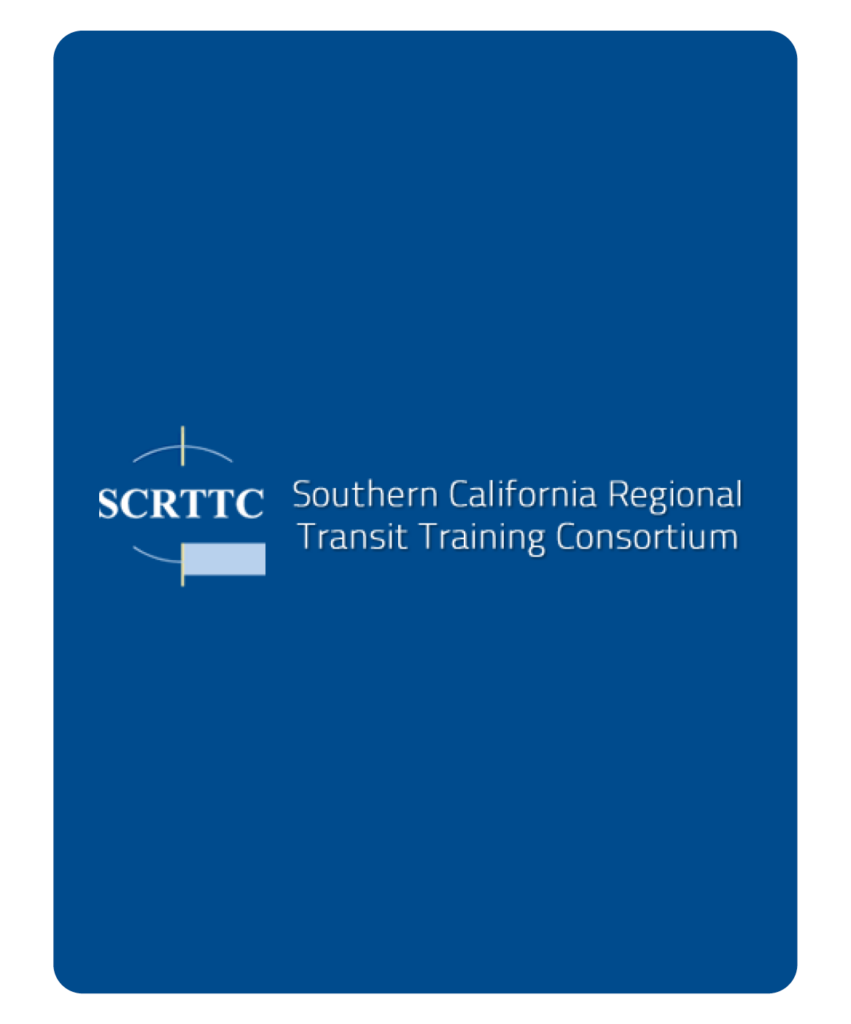
California Transit Training Consortium (CTTC)
The California Transit Training Consortium, founded as the Southern California Regional Transit Training Consortium, is comprised of community colleges, universities, transit agencies, and public and private partners collaborating to design, develop, and deliver technical training for the improvement of the transit workforce in California.
California Transit Training Consortium
TOPICS: Training
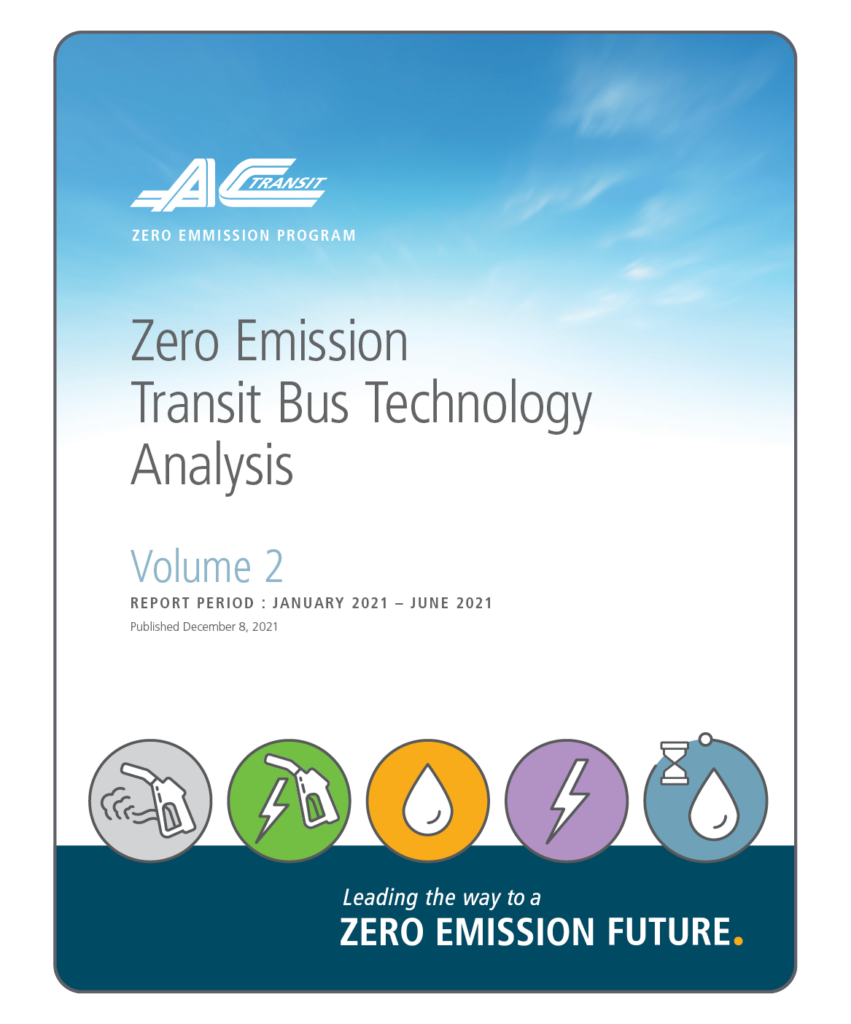
Zero Emission Transit Bus Technology Analysis Volume 2
This report, Volume 2, is the second edition of the Zero Emission Transit Bus Technology Analysis (ZETBTA) which includes results from the fuel-cell electric bus (FCEB), battery electric bus (BEB), diesel hybrid bus, and conventional diesel bus technologies control fleet. It integrates lessons learned and best practices gleaned from AC Transit’s extensive experience in deploying ZEB technologies, including developing innovative workforce training programs, data integration and management, and transit deployment viability.
AC Transit
December 2021
TOPICS: Procurement, Training, Zero Emission Buses
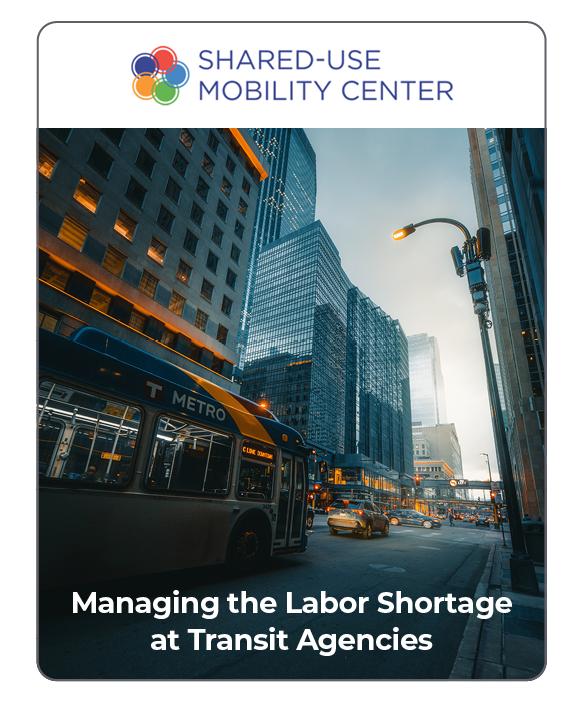
Managing the Labor Shortage at Transit Agencies
This article examines labor shortages in the public transit industry. It focuses on the following points:
- Transit agencies across the United States are experiencing a significant shortage in labor, that the COVID-19 pandemic has worsened. This shortage is negatively impacting the services they provide to the public.
- Employees at transit agencies have a significantly higher median age than employees in other industries.
- Transit agencies should use data and information to consider recruiting and retaining employees for the long term.
Shared-Use Mobility Center
November 2021
LEARN MORE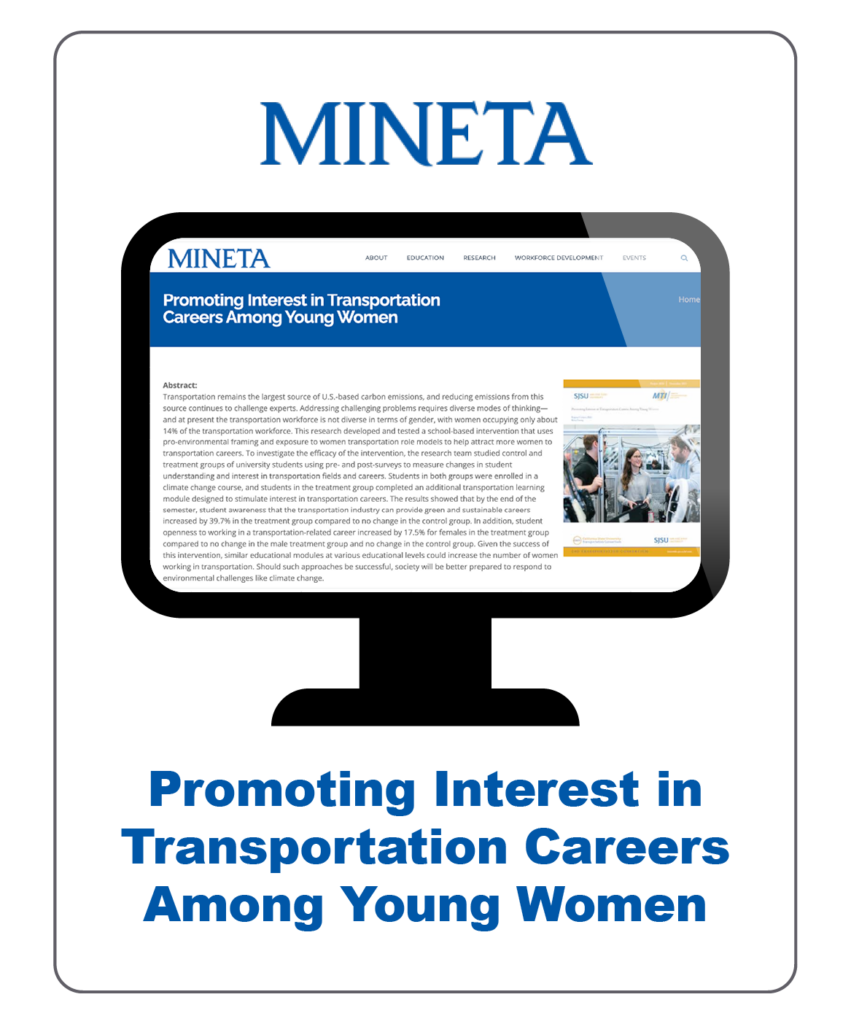
Promoting Interest in Transportation Careers Among Young Women
This research developed and tested a school-based intervention that uses pro-environmental framing and exposure to women transportation role models to help attract more women to transportation careers. The paper explains how this method increased student awareness that the transportation industry can provide green and sustainable careers, particularly for female students.
Mineta Transportation Institute
November 2021
LEARN MORE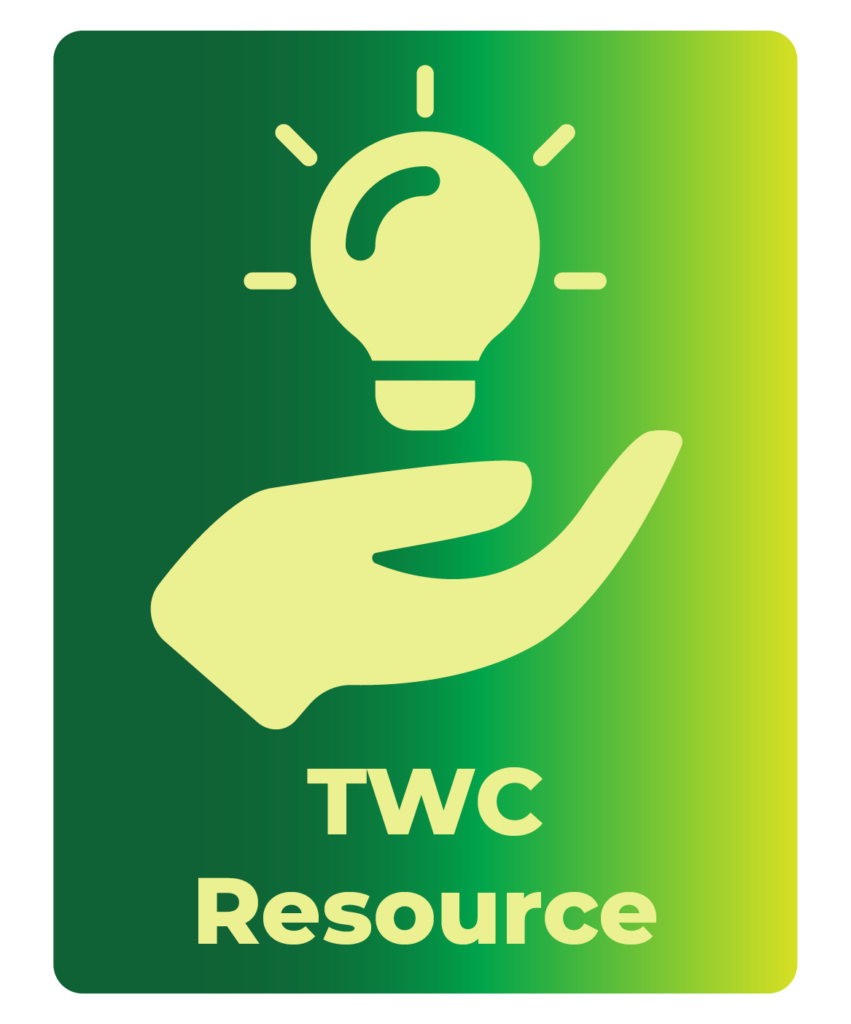
ATTAIN One-page Handout
The American Transit Training and Apprenticeship Innovators Network (ATTAIN) provides public transit agencies and their frontline workers opportunities to engage in peer exchanges about transit apprenticeships,
including their creation, structure, operation, and benefits. ATTAIN coordinates various forums that allow transit agencies with existing apprenticeship programs to share experiences in developing, strengthening, and expanding their programs. It also offers peer support and expertise to transit agencies interested in exploring the creation of new apprenticeship programs.
Check out the one-pager for quick info about ATTAIN!
Transit Workforce Center
September 2021
TOPICS: Apprenticeship, Career Pathways, Hiring and Recruitment, Policy and Planning, Trainer and Mentor Development
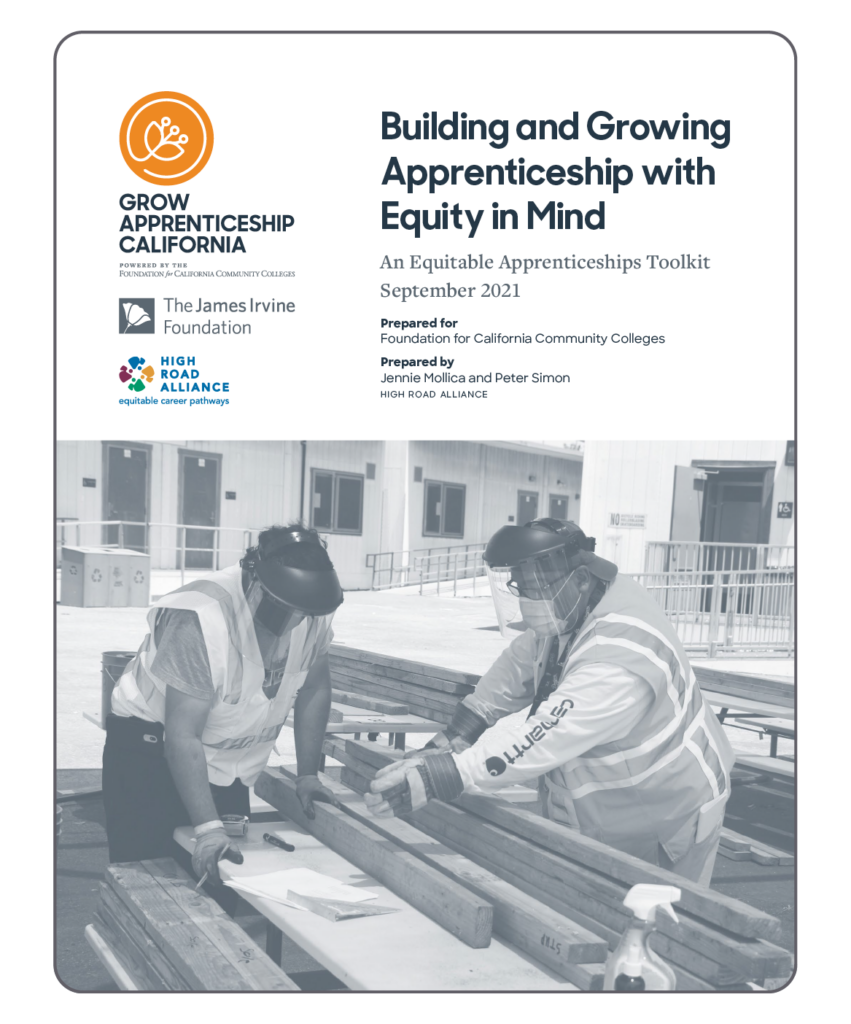
Building and Growing Apprenticeship with Equity in Mind
This toolkit was created to help those whose work involves designing and running pre-apprenticeship and apprenticeship programs to intentionally encourage and support the inclusion of apprentices who reflect the full
diversity of our communities — in terms of race, ethnicity, gender, primary language, disability, age, sexual orientation, and other factors.
High Road Alliance
September 2021
LEARN MORE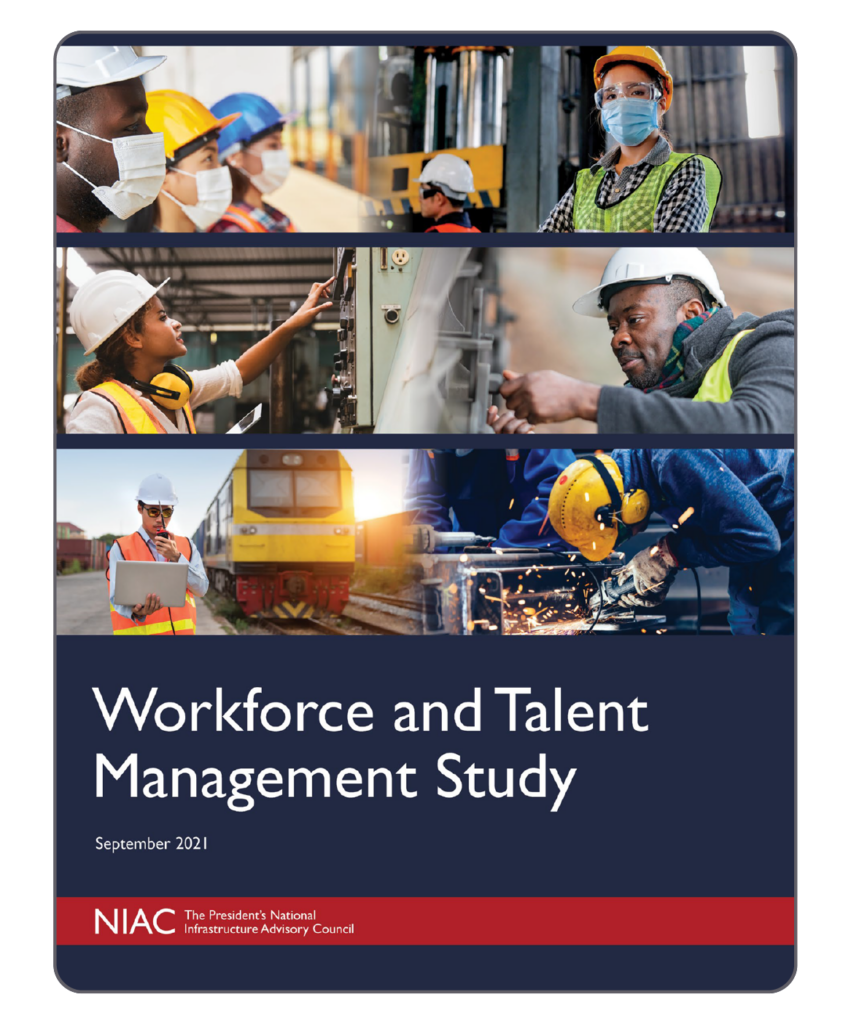
Workforce and Talent Management Study
This study provides an in-depth examination of the U.S workforce development system and offers nine recommendations to inform future policy development and keep the critical infrastructure workforce nimble in the face of change. The recommendations are guided by the principle that all workers must have equitable access to the education, training, and resources necessary to begin and advance in critical infrastructure careers
National Infrastructure Advisory Council
September 2021
LEARN MORE
The Education/Career Readiness Continuum graphic on page 11 of the report might be useful to agencies considering comprehensive workforce development plans.
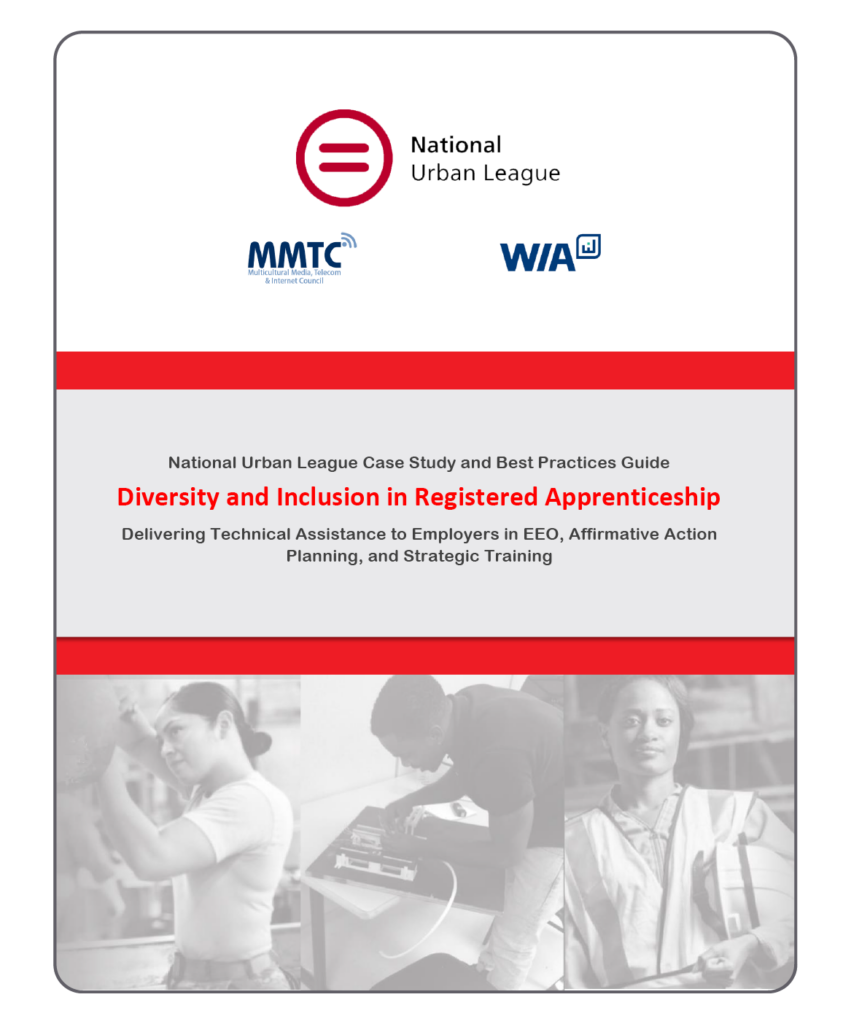
Diversity and Inclusion in Registered Apprenticeship
This case study examines the NUL Consortium’s strategies for providing technical assistance to employers as they seek to promote and diversify their Registered Apprenticeship programs. It includes a best practices toolkit detailing EEO compliance, affirmative action planning, and NUL’s employer DEIA training. It seeks to serve as a replicable guide for industry, equity, and opportunity partners, community-based organizations, and other groups or individuals with similar goals.






